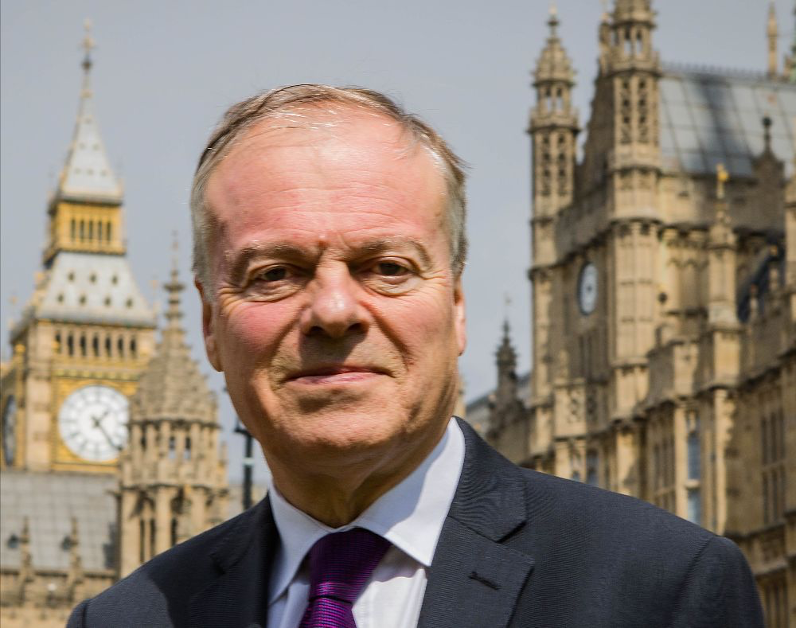IN THE NEWS
What will Liz Truss or her successor's premiership mean for adult social care?
On the 5th of September, after two arduous months of votes, debates and hustings, Liz Truss was declared the new leader of the Conservative Party, and the UK’s new Prime Minister. Her predecessor, Boris Johnson, stood outside Downing Street in his final speech as leader and claimed to have delivered on manifesto commitments, including social care. Many would disagree, and as such are keen to see what Liz Truss -- or her successor -- has in store for the sector.
Reversing the health and social care levy
The most notable of Liz Truss’s commitments made during her leadership campaign related to where additional funding for the sector would come from. During her campaign she'd committed to the extra funding for social care, but rather than paying for it through an increase in National Insurance (NI) -- which she pledged to reverse -- instead it would be funded via general taxation.
Unlike most of the Prime Minister's tax cuts which have been reversed by new Chancellor, Jeremy Hunt, the NI reversal is still (at the time of writing...) set to go ahead.
Significantly, Liz Truss had stated at hustings in Birmingham that more of the social care budget should be devolved to local authorities.
In a letter to Liz Truss, the Local Government Association praised her approach to adult social care funding, welcoming her promise to prioritise social care. Notably, Jane Townson, Chief Executive of the Homecare Association, expressed concern over this approach to funding the sector, worrying that there could be a “complete meltdown in services” if the money cannot be found.
Support for the ‘cost of caring’ crisis
On top of funding for provision of services, the sector is looking to the Prime Minister for assistance on rising energy bills, exacerbating an already stark cost of caring crisis for the sector. The Prime Minister unveiled measures to help households and businesses with energy costs at the start of September, guaranteeing support for the latter for six months.
However, the sector feels that more targeted support for care providers is the only way for many to get through the winter. Care England has proposed a per bed energy price cap as part of measures “to avoid widespread catastrophe” according to Chief Executive, Martin Green. Meanwhile Mike Padgham, Chair of the Independent Care Group called for action on energy costs to avert the “very real risk of significant provider failure.”
Ultimately, most in the sector would agree with Vic Rayner of the National Care Forum, who has called the start of Truss’s premiership “pivotal… for the many millions of people who work, use and operate adult social care.”
Interview
For this month's edition we spoke to Clive Betts MP, Chair of the Levelling Up, Housing and Communities Committee. The committee recently published a report on long-term funding of adult social care, and Mr Betts believes this, along with setting out clear workforce plans, should be top of the Prime Minister’s to-do list for the sector.

Given Liz Truss has said that the NHS budget "will have to continue to go up", how likely is it that social care will see the £13 billion in extra funding?
The reality is that an underfunded social care sector only puts more pressure on the NHS. People whose care needs are unmet are more likely to end up in hospital, and the absence of suitable care arrangements keeps people in hospital for longer. In our report, 'Long-term funding of adult social care', we argued that the NHS and social care are interdependent: rather than pitting one against the other, each needs to be adequately funded to reduce pressure on the other.
Is the £86,000 care cap at risk if extra funding for the sector comes from general taxation rather than the dedicated levy, as Liz Truss would like to see happen?
It was clear from our inquiry into the long-term funding of adult social care that the £86,000 cap was already at risk from the Government potentially underestimating how much it would cost to implement its proposals for how people pay for their care. The Government should re-evaluate the cost and provide further funding to local authorities if necessary. The £5.4 billion over three years that the Government has ring-fenced from the levy for both its charging reforms and sector reforms is totally inadequate. We recommend that wherever the money comes from, the Government urgently needs to allocate at least an extra £7 billion each year to social care.
The answer is simple: increase wages
Liz Truss wants to see more people in social care beds. What can she do to ensure the sector has a sufficient workforce to deliver this care?
The answer is simple: increase wages. We heard directly from care workers that their wages do not make them feel valued for the highly skilled nature of their work and the responsibility for others’ lives that they have. They earn the same or more working in retail or hospitality, and many leave the care sector for higher pay in the NHS. The Government should also focus on increasing opportunities for career progression, reducing the number of zero-hour contracts, and taking further steps to recruit more care workers from overseas if needed.
What must Liz Truss or her successor do to ensure she doesn't replicate Boris Johnson's failure to, as he vowed, "fix social care once and for all"?
The Government must provide adequate long-term, sustainable funding for adult social care so that everyone who needs it can access good quality care. Councils need a multi-year financial settlement so that they can put proper plans in place for their residents and local care markets. Currently the Government has nothing more than a vision. It needs to publish a 10-year social care plan with a timetable and key milestones, which embeds the crucial role of housing in care and delivers a suitable variety of housing options, recognising that most people receive care in their own home. It also needs to provide proper support to workers and unpaid carers. More immediately, the Government needs to save the sector from the brink of collapse and increase short-term funding to deal with rising inflation and energy costs.
OPINION
In the first of this month’s two sector opinions, Natasha Curry, Deputy Director of Policy at the Nuffield Trust, outlines exactly what is facing Liz Truss or her successor as they look to revive the adult social care sector.

On taking office, Boris Johnson pledged to fix social care ‘once and for all’. In his departure speech, he declared that he had, indeed, delivered on manifesto commitments to do just that. However, despite these bold claims, Liz Truss has inherited a system that’s far from fixed and is actually edging closer to breaking point. Secretary of State for Health and Social Care, Thérèse Coffey, appeared to quickly grasp that all is not well in social care – in her second day in the job, reports were circulating of plans to divert NHS money to pay for care home beds.
Johnson’s administration did set in train some reforms which are being implemented. Under these changes, more individuals should receive public funding for care through a more generous means test, a lifetime cap on costs and by enabling people who pay for their own care to favourable rates. These reforms are set to take effect from October 2023 but there is already concern that the financial envelope is insufficient. While welcome, these proposals focus on just one of the problems plaguing the system – people facing catastrophic costs for care. However, in recent years that issue has arguably been eclipsed by a more fundamental problem – people struggling to access care at all.
Johnson’s administration did set in train some reforms which are being implemented
A decade of austerity and a failure to implement any reforms over two decades has left social care in a fragile state at a time when need for care has risen. Reliance on sporadic short-term injections of money instead of a sustained and certain source of funding, has rendered providers of care and councils unable to effectively plan or invest in services over the long term. Failure to address deep-seated workforce issues has resulted in a serious shortage of staff, leaving provider organisations unable to recruit and retain workers. Covid burnout and competition from other sectors have added to the issues of low pay and poor conditions and seen staff leaving the sector in large numbers. Vacancies hovering around 165,000 at last count mean that providers are not only unable to expand to meet growing need but also to fill existing posts. Long waits for care assessment and packages mean that councils are struggling to meet immediate needs, let alone facilitate development of new innovative models of care to suit growing demand and changing preferences.
One of the more visible manifestations of this crisis is the number of delayed discharges from hospital but much of it is playing out behind closed doors in people’s homes as they struggle to do everyday tasks and increasingly rely on friends and family for support. Whoever is carrying the keys to 10 Downing Street, top of their urgent to do list should be to retain and expand the beleaguered workforce and shore up fragile providers ahead of winter. But she also cannot afford to neglect the long-term. A true fix for this broken system requires a strategic long-term plan that addresses the underlying fault lines, not just short-term sticking plasters that simply delay collapse.
OPINION
In this month’s second opinion on Liz Truss, Janine Tregelles CBE, CEO of Revitalise, says that with the uncertainty that has plagued the health and social care sector for the last three years, action must be taken swiftly and decisively.

Tackling the crisis in social care must be the Prime Minister's top priority, whether that be Liz Truss or a successor. There is simply no more time to waste. The cost-of-living crisis, rising inflation and soaring energy bills are putting a huge strain on already stretched healthcare budgets, taking them to breaking point.
On the steps of Downing Street on the day of her appointment, the new Prime Minister promised to ‘put the health service on a firm footing’.
It is fair to say that the NHS and social care have been on anything but a firm footing in recent years. Five different Health Secretaries in four years certainly hasn’t helped, as neither did Boris Johnson saying he would ‘fix the crisis in social care for good’, without ever properly budgeting for how this was going to happen.
It is fair to say that the NHS and social care have been on anything but a firm footing in recent years
Our Prime Minster cannot make the same mistake. In her election campaign, Liz Truss pledged to divert £13 billion of NHS funding into social care, but crucially she is yet to reveal what impact these cuts will have on the NHS itself. We all know that we cannot fix the problems in the NHS without tackling the crisis in social care, but we cannot simply move precious funds around without consequence.
Getting social care back on its feet will hugely help the NHS at one end of the healthcare chain, but not if vital funds are simultaneously being drained out of the other.
This Government has shown it can find the money to tackle issues such as the Covid pandemic when it needs to. Social care needs to be properly funded so everyone who needs to can access vital social care services, and local authorities must have the funding to cope with soaring demand.
The Covid pandemic had a disproportionate impact on disabled people and their carers. Carers are already reporting exceptionally high levels of fatigue and stress, while disabled people and those who care for them are finding it even harder to access respite breaks or other essential support.
As we approach what will be an exceptionally tough winter for everyone, the Secretary of State for Health and Social Care cannot lose any more time in addressing this vital issue. They must commit to act on the Government’s promise to fix social care and provide a fully-funded, long-term plan to carry it out.
Now is the time for tough, decisive action, otherwise the consequences for so many could be devastating.



